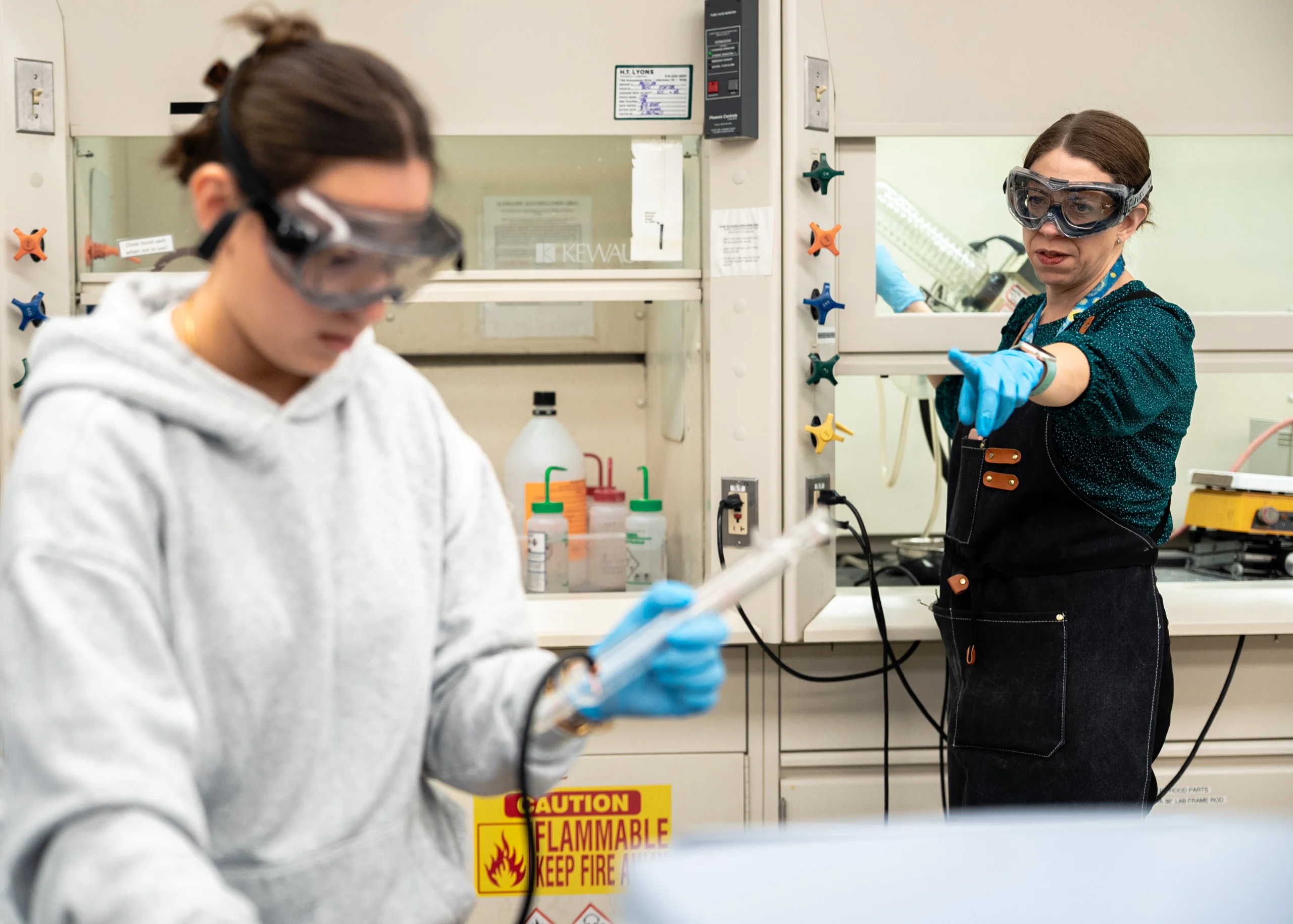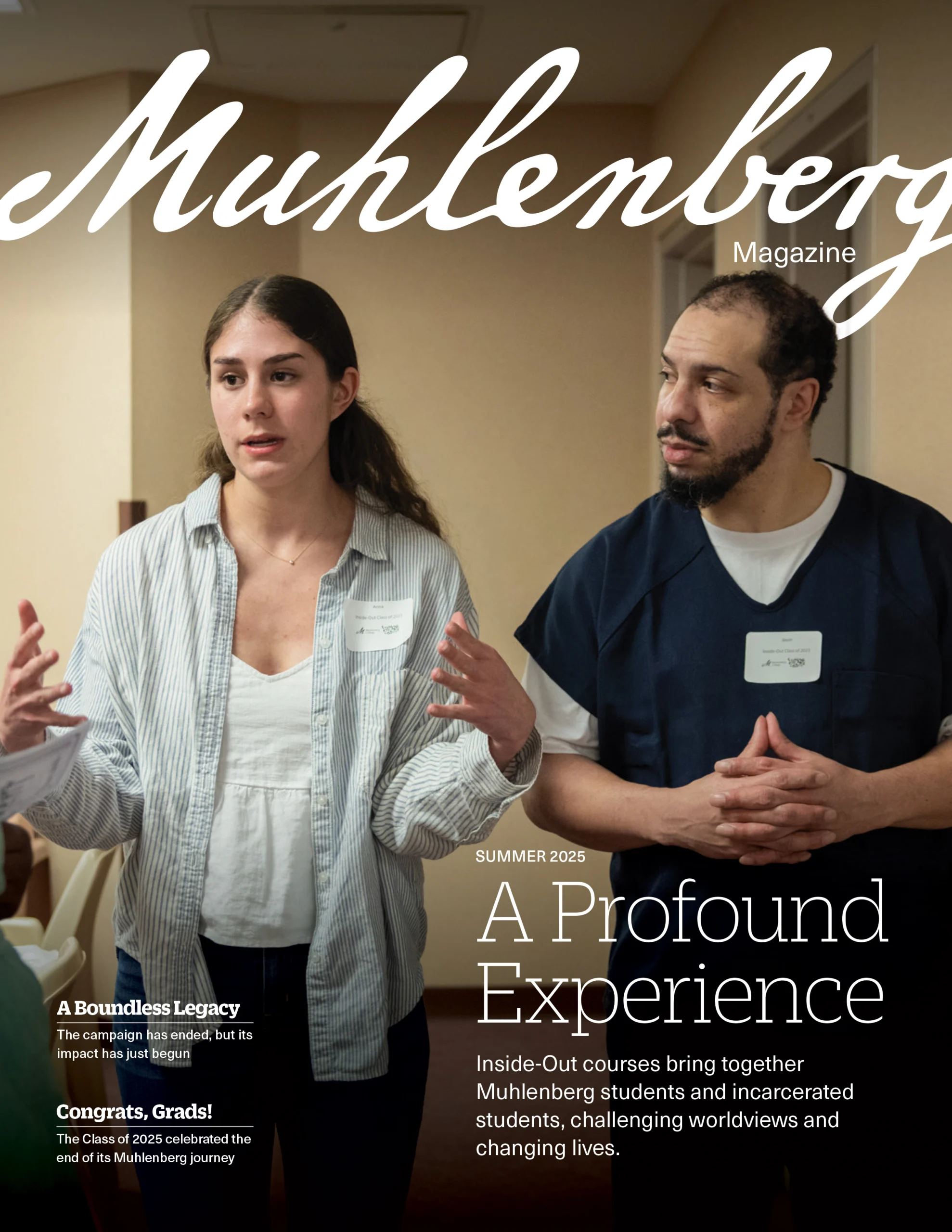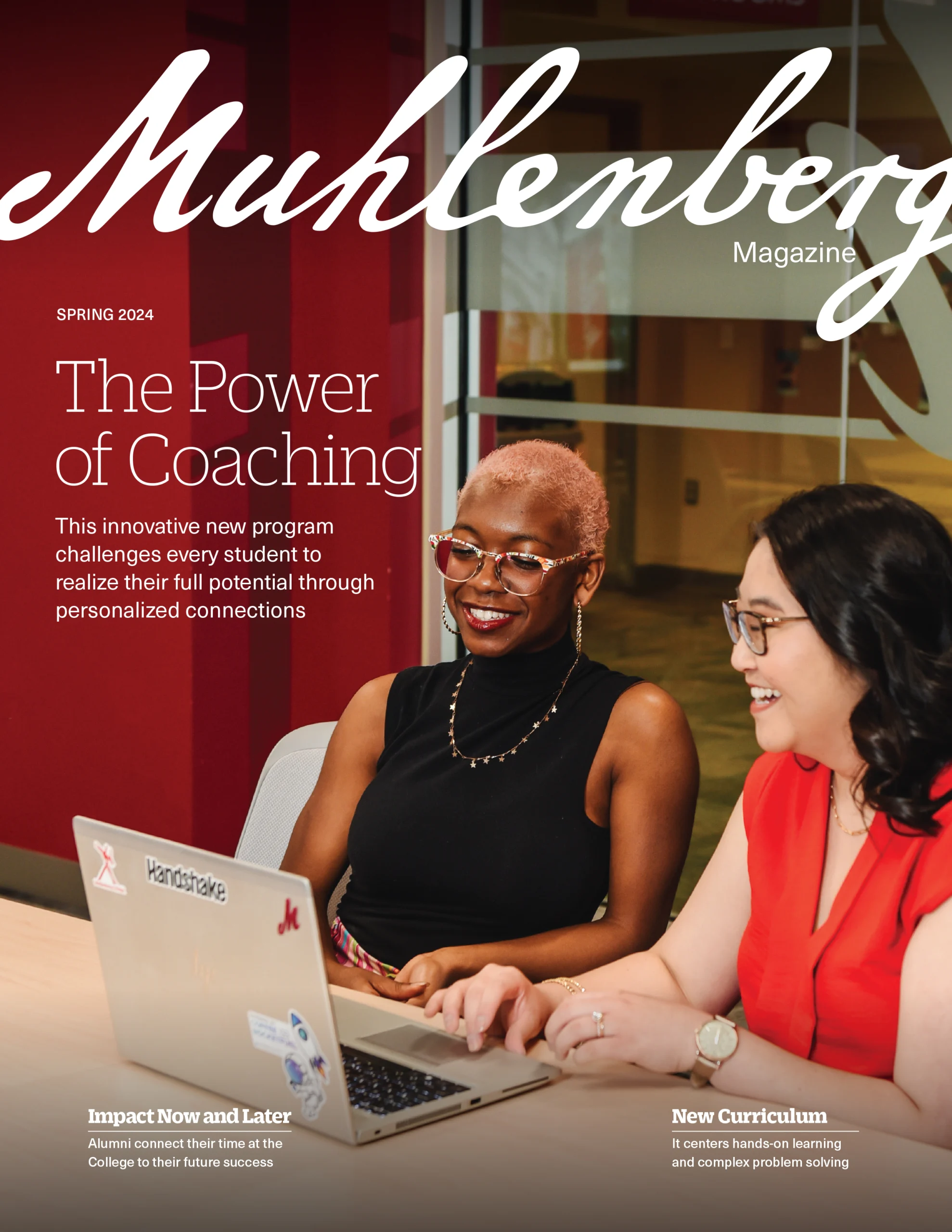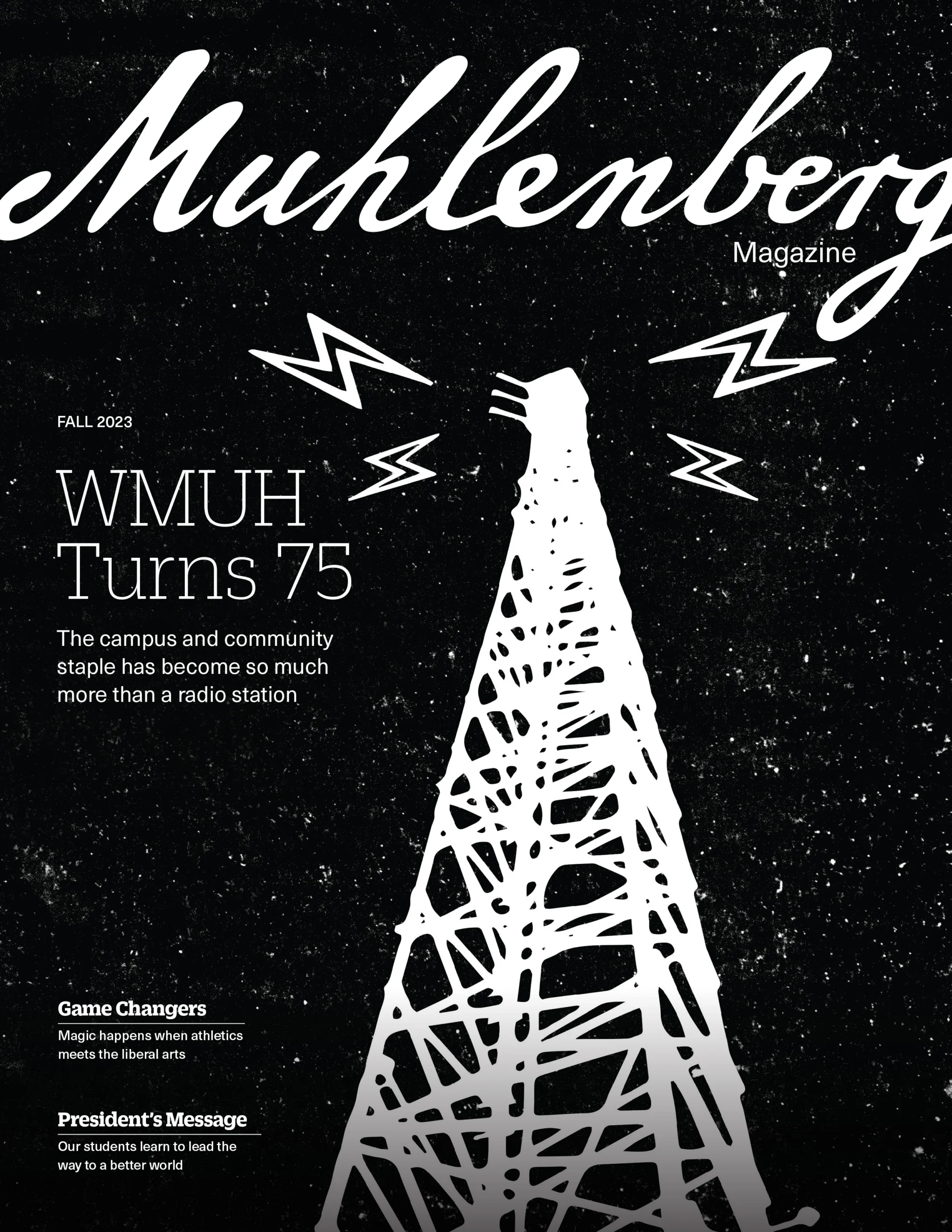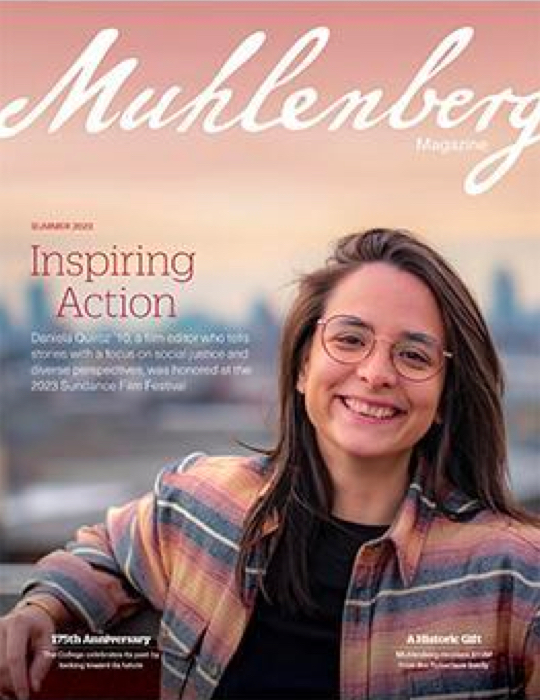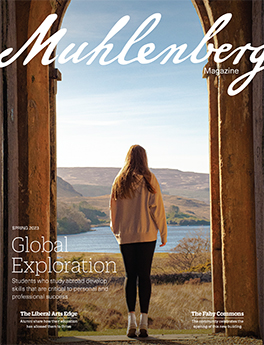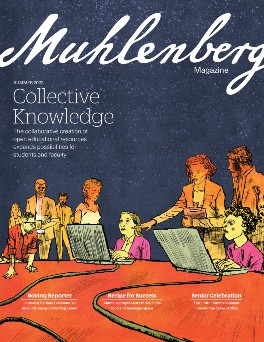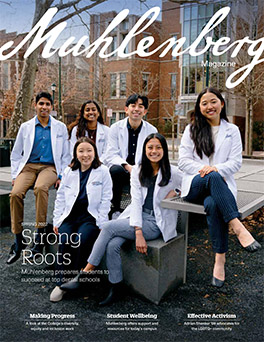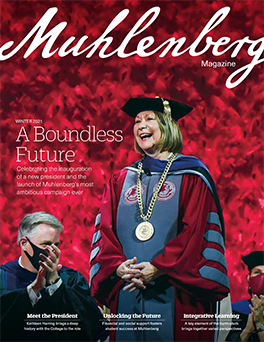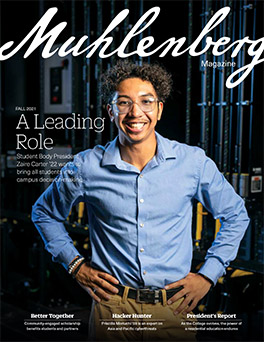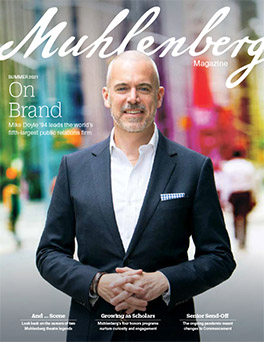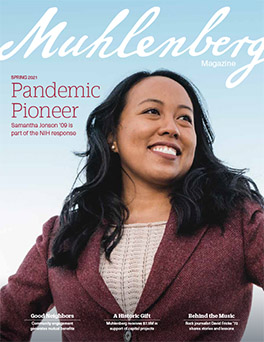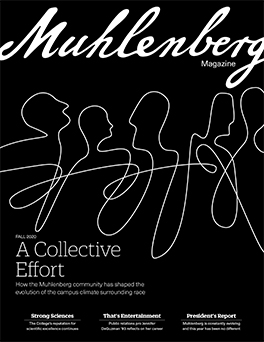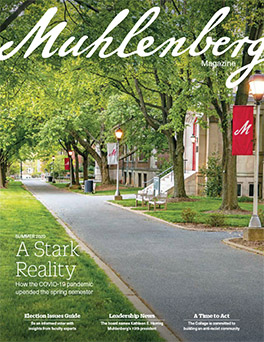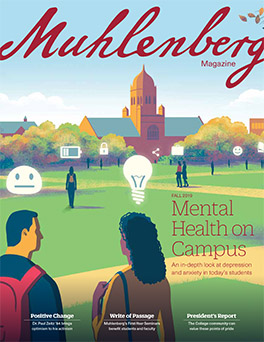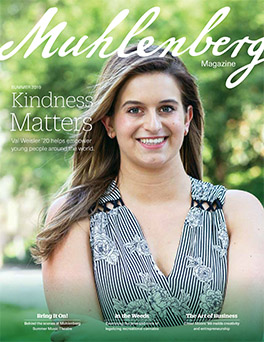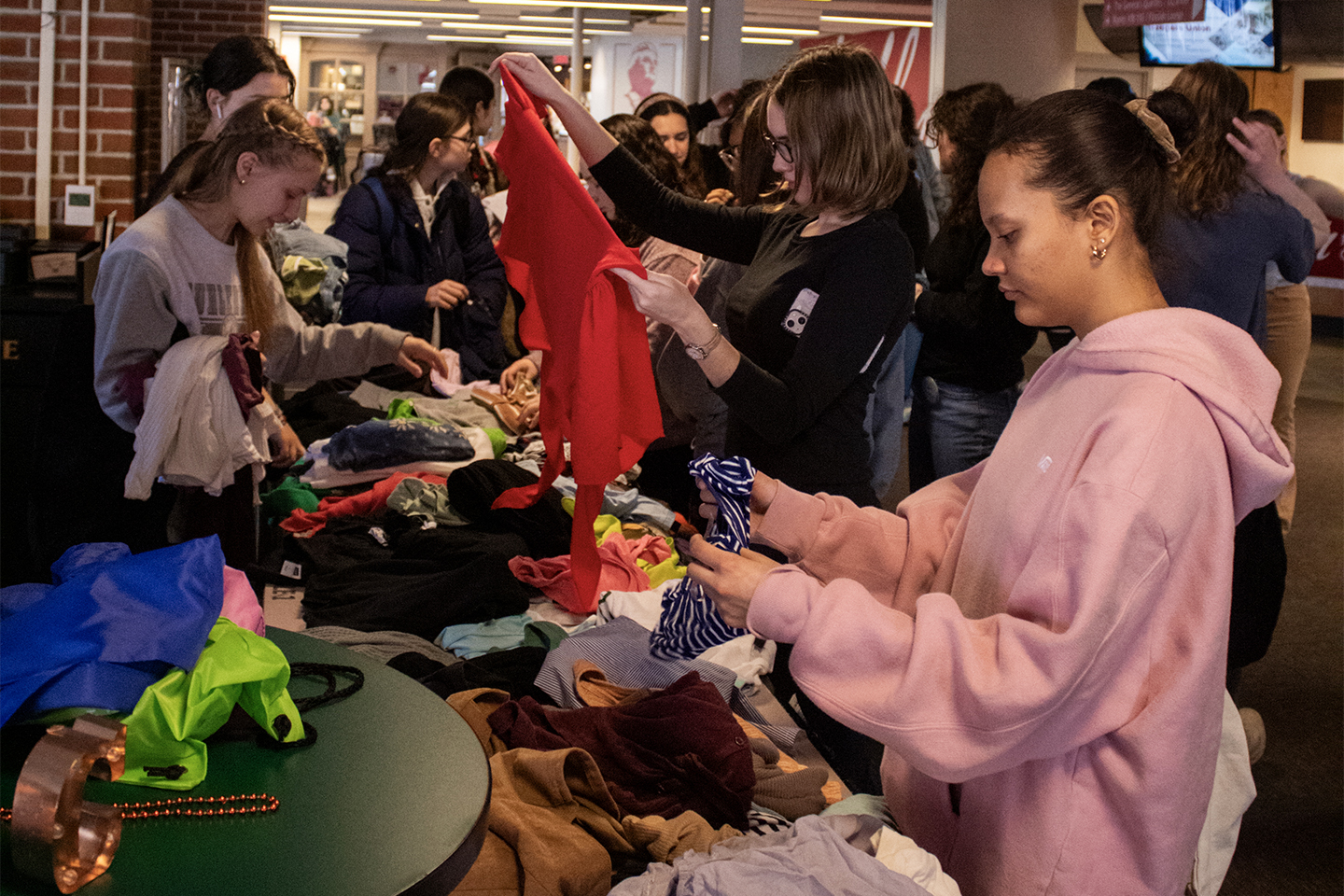
A Fashionable Way to Help the Environment
Popular clothing exchange events on campus allow students to educate their peers about the pitfalls of fast fashion.
Photo by Sierra Addy ’27
Maddie Davidson ’25, Serena Hertzog ’23, Jessica Rosen ’24 and Harli Strauss-Cohn ’24 revived Muhlenberg’s Environmental Action Team, better known as enACT, after a pandemic hiatus in Spring 2022. That semester, enACT held its first campus clothing swap. It was so popular that they’ve done it twice a semester since, most recently on February 3. Students bring unwanted clothes to share, campus a cappella groups provide entertainment and leftover items are donated to local middle schools. This semester, the students added an educational component to teach participants about how fast fashion impacts people and the planet. Here, Davidson explains why.
The clothing swaps are a great way to meet people and get folks on the enACT mailing list. Students are able to clean out their closets and try other styles. Every time we do it, we expand a bit.
This semester, enACT is partnering with other campus organizations — including Muhlenberg Body Positive, PHAM (Peer Health Advocates at Muhlenberg) and the Historical Dress Society — to establish a semester-long educational series about fast fashion. We intentionally collaborate with as many different organizations as possible. The sustainability movement is incredibly intersectional. It’s easy to shove fast-fashion initiatives under the enACT umbrella, but we want to build a bigger umbrella. The series will cover how clothes are produced, how we consume them and what happens next.
The series began with the clothing swap. Because it is such a successful community initiative, we wanted to take it a step further and integrate more thoughtful education. We invited people to share where their clothes were made and added pins to a map of the world for each garment. We saw trends that weren’t surprising. The clothing absolutely wasn’t made here — it was made overseas, through cheap, unethical labor.
Fashion trends are changing so quickly that some fast-fashion companies produce tons of new styles daily. Clothing that isn’t sold, is returned or is worn for a short time before falling apart or going “out of style” is likely to end up in landfills. The cheap materials fast-fashion companies use, synthetic and plastic, do not break down. Waste textiles are also often “donated” to countries in the Global South, some of which are so overrun that they’ve banned such imports. To manage the overflow, some of these countries burn the clothing. When plastic is burned, it releases harmful toxins into the air. We’re not breathing them in here. This is a huge component of environmental racism. These are the people who are mainly impacted by our need to get ahead of the trends. We’re enabling it, but we’re not facing the consequences — yet.
A lot of sustainable fashion brands are super expensive because they’re not depending on cheap labor or materials. A lot of people can’t afford that. This initiative is not meant to instill guilt but to spread awareness. It’s a tricky balance.
We’re trying to educate in a way that empowers and doesn’t scare. We think the clothing swap is a really great way to do that. It’s like slipping spinach into a smoothie. We’re slipping this interesting educational perspective and awareness into something fun. And who doesn’t want free clothes?
“We’re trying to educate in a way that empowers and doesn’t scare. We think the clothing swap is a really great way to do that.”
—Maddie Davidson ’25



